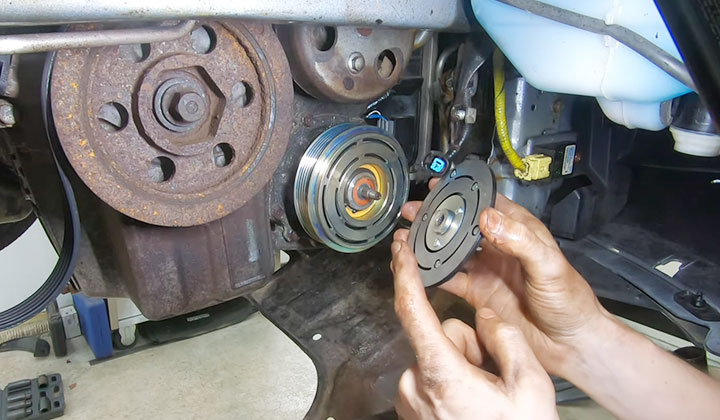The air conditioning comes in handy, especially when the weather is hot. Does your Honda Accord still make you sweat while driving? Is your air conditioner failing to cool properly?
A variety of factors may cause it. These issues are listed in this article, along with steps you can take to resolve them. A refrigerant leak, electrical issues, or a system malfunction are the most common reasons for an Accord’s AC not working.
Your Honda Accord’s air conditioning may malfunction for several reasons. The most apparent cause is a low refrigerant level in the system, and you should always look for this first.
Honda Accord Ac Compressor Problems – Causes And How To Fix It?
If you’re noticing an issue with your car’s performance, don’t wait to diagnose and fix it. Here are five common issues that can cause loss of power or emissions problems: a bad belt, a damaged fan motor, a leaking air intake system, coolant leaks, and a defective air cleaner.
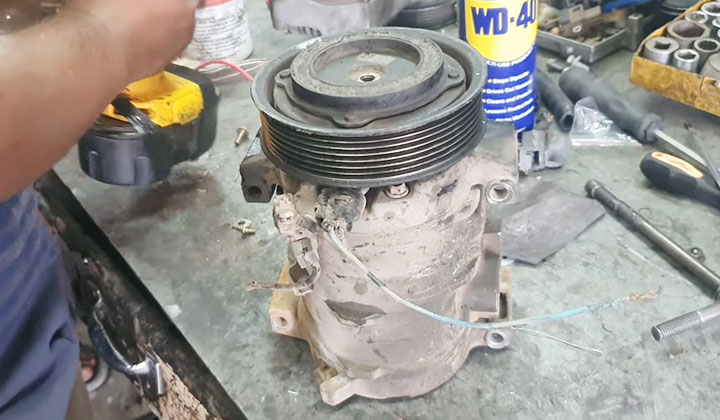
If you notice any of these symptoms soon after starting your Accord Ac engine, take action to restore car performance as quickly as possible.
Diagnose and fix the issue as soon as possible to restore car performance
Do not ignore Honda Accord AC compressor problems if you experience reduced power or diminished acceleration; they can lead to costly repairs and loss of car performance.
The first step is to determine the cause of the problem, which may be due to a faulty compressor, clogged lines, or debris buildup in the system. Once you have diagnosed the issue, there are several repair methods that you can try – from replacing parts to resetting sensors and programming codes.
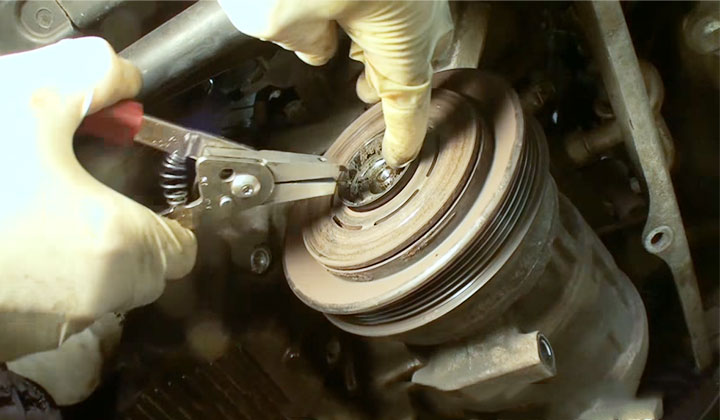
If everything fails and your car is beyond economical repair, it’s time for a new engine. Be sure to consult an expert when diagnosing Honda Accord AC compressor problems so you get back on the road as quickly as possible.
Air intake system:
You’ll likely need to replace parts such as an air intake manifold or butterfly valve to repair this issue.
If you’re experiencing Honda Accord AC compressor problems, it’s essential to identify the cause first. Once you know what’s causing the issue, fixing it may require a few simple parts replacements.
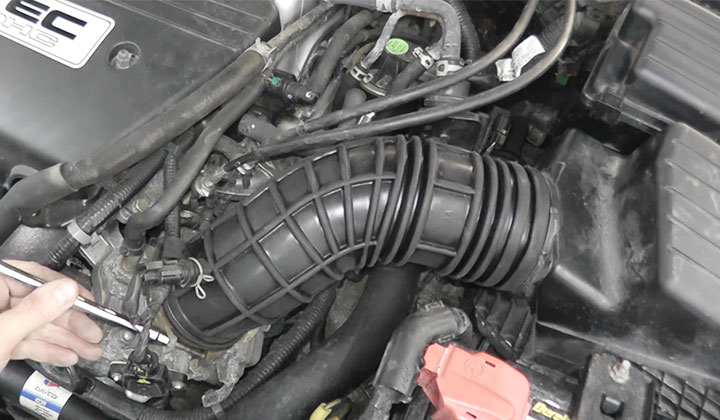
Remember that some repairs may also necessitate replacing your air intake system. Be sure to consult an expert if you experience any trouble with your Honda Accord AC compressor, and don’t hesitate to call us for help.
We’ll be here to help walk you through repairing or replacing your air intake system on your own Honda Accord car or truck.
Bad belt:
A lousy belt can cause poor engine performance due to clogged fuel injectors and worn-out camshafts. If not fixed quickly, this problem can lead to a blown engine seal, which could result in expensive repairs down the road.
If you notice poor engine performance, a bad belt may be the cause. The best way to diagnose and fix this problem is with a diagnostic scan tool. Be aware of any warning signs such as smoke or reduced fuel economy – if these appear, it’s time for a replacement belt.
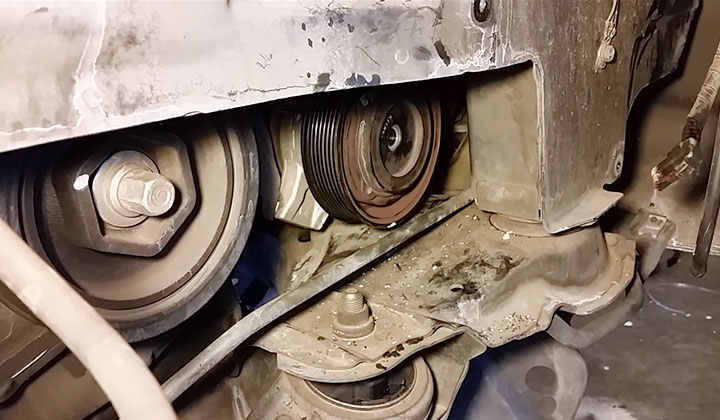
Keep an eye out for other symptoms that could indicate a more severe problem, such as clogged fuel injectors or worn-out camshafts – don’t wait until it’s too late. Don’t let your Honda Accord AC compressor problems keep you from enjoying your ride – get them fixed today.
Damaged fan motor:
A malfunctioning fan motor will reduce airflow into your car’s engine, resulting in decreased power output (and potential emissions issues). In most cases, replacing the faulty fan will solve your problem.
If your Honda Accord’s fan motor is not working correctly, it may be due to a faulty component. By following these simple steps, you can fix the problem yourself and restore horsepower to your engine.
Check for any fluid leaks in the system – a leaking compressor will cause reduced airflow into the engine, leading to power issues and emissions problems. Replace any damaged parts with OEM replacements – if something isn’t functioning as it should, replace it with an original part from Honda rather than trying to make do with a cheaper substitute.
Clean all of the internal components of the fan motor contaminants, such as dust and debris, will reduce efficiency over time and damage parts beyond repair.
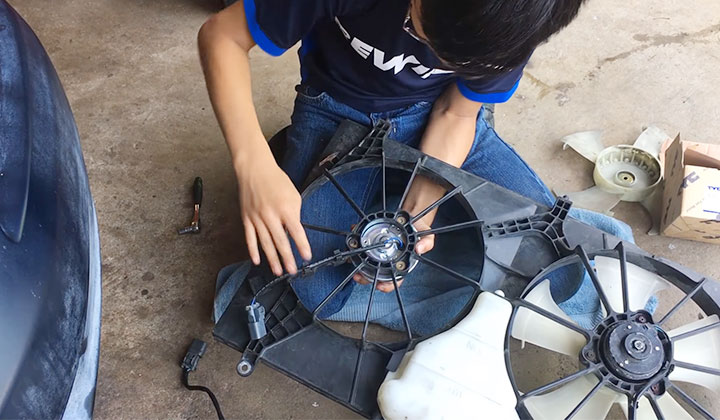
Rebalance or adjust air pressure in critical areas. There seems to be excessive vibration or noise emanating from under the hood (especially during acceleration); this may indicate that air pressure needs adjusting somewhere along the line for optimal performance.
Finally, regularly check all fluid levels (including coolant) and top them off as needed so everything runs smoothly.
Leaking air intake system:
A Malfunctioning Fan Motor Will Reduce Airflow into Your Car’s Engine, Resulting in Decreased Power Output (And Potential Emissions Issues). In most cases, Replacing the Faulty Fan Will Solve Your Problem.
If you’re experiencing a loss of air from your Honda Accord’s air intake system, it could be due to an incorrect gasket, loose cabin filters, or a damaged air cleaner.
To diagnose and fix this issue quickly and easily, keep in mind the following tips: inspect for signs of damage, such as distortion or leaks around the perimeter of the filter housing; check for debris buildup inside the engine bay; replace any faulty components like the air intake valve if applicable.
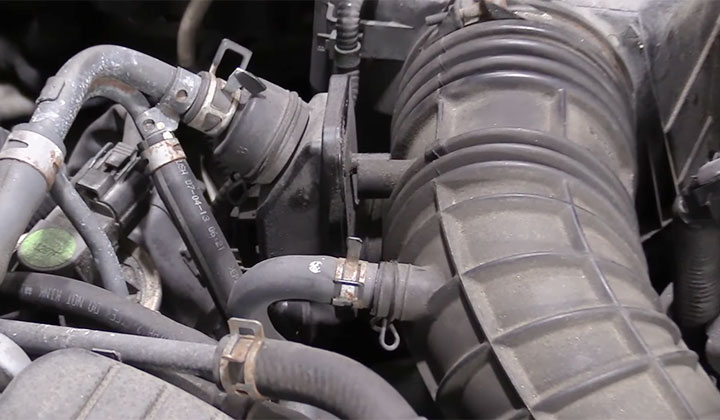
Suppose you have experienced significant damages beyond what is covered by warranty coverage. In that case, consulting with a professional mechanic may be necessary to restore your car to its pre-problem condition.
However, even if something isn’t covered under warranty, many DIY options can help resolve common issues like this without costing too much money (like replacing parts yourself).
Don’t let this problem get you down, though – take some preventative measures like regularly checking all seals and fittings on your vehicle’s exterior and maintaining regular fluid levels in all internal combustion engines.
Coolant leaks:
One common cause of reduced Accord AC compressor performance is coolant leakage around the Honda Accord AC condenser/fan assembly.
A coolant leak can reduce the performance of your Honda Accord Ac compressor, which is one common cause of reduced Accord Ac compressor performance. To diagnose and fix a coolant leak, you need to identify the source of the leakage and correct it.
Suppose you notice decreased Accord Ac compressor performance. In that case, there are some simple things that you can do to increase its efficiency or check for other potential causes first before assuming a problem with your fan assembly.
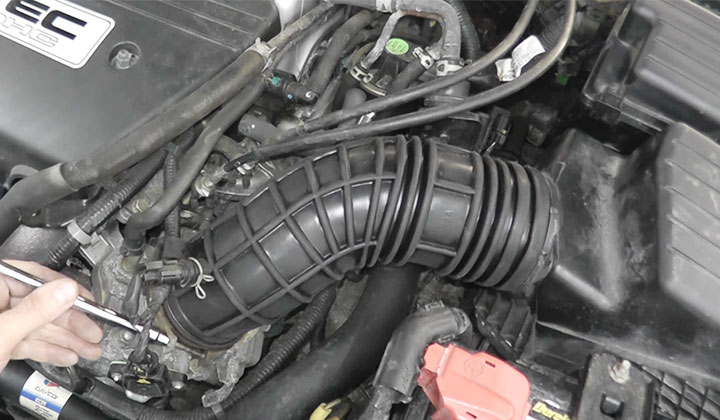
Remember to use genuine Honda parts to get optimum results from your Accord Ac compressor; aftermarket parts may not give you the same reliability or performance as factory-installed components.
Keep an eye on your car’s cooling system regularly so any leaks can be fixed promptly before they lead to further problems.
What causes an AC compressor to stop working in a car?
If your AC compressor stops working in your car, there are a few things you can do to check the condition of the condenser coils and system. Ensure all suction lines are clear of debris or obstructions before proceeding.
Check for an air leak by turning off all power to the car, and then check for cold air from under the dashboard or near the A/C unit itself. Adjusting compressor speed may be necessary to restore proper cooling; if not, call a technician.
Finally, if, even after following these steps, your AC still does not work, it is best to get help from a professional mechanic.
Why isn’t my AC working in my Honda Accord?
If your AC unit is not working, there are several things you can do to check for and fix the issue. By identifying any potential issues with your air conditioning circuitry, you may be able to correct the problem before it becomes more serious.
If there is no refrigerant leak, tests may reveal other electrical problems that need fixing. Finally, if testing shows that the compressor is defective, it may be necessary to replace it to restore functionality to your car’s AC system; however, this should only happen as a last resort.
Why do Honda AC compressors fail?
AC compressors are often used to cool off rooms quickly, but they can also fail when the seals that keep the oil lubricated start to leak. Overuse of a Honda AC compressor can lead to damaged hoses and fittings as well as corrosion on external parts of the machine.
If your Honda AC compressor shows signs of wear or age, it may be time for a replacement.
Can a car AC compressor be fixed?
If your car’s AC compressor is not working correctly, it may be time to replace it. A defective compressor could require a quick and easy repair, but more durable options are also available.
A broken compressor can be fixed in just a few hours with the help of a qualified technician, saving you time and money. Make sure to call around for estimates so you don’t end up spending too much on repairs unnecessarily.
Watch for warning signs that indicate your compressor might need replacement, and act fast if necessary.
What would make my car AC not cool?
You may be experiencing issues with your car’s AC because the refrigerant needs to be recharged, and the air conditioner isn’t receiving enough cold air.
Check to see if the air conditioner is receiving filtered cold air by checking for an intake filter on top of the unit and a condenser coil and compressor.
If you notice a leak in one of your car’s compartments or components, it might need to be fixed before you can try using your AC again. Ensure all filters are clean and replace them when necessary- this will help improve the performance of your A/C system overall.
Finally, ensure your car’s compressor is working correctly by inspecting its motor cover light – if it stays on even after turning off the key, there may be something wrong.
Does Honda have AC problems?
Honda has a history of AC problems, which could lead to defective systems and components that leak refrigerants. If you experience any symptoms described above, reaching out for help as soon as possible is essential to minimize damage or loss.
You can take various steps before filing a claim with Honda; however, it is essential to be aware of their process so that everything goes smoothly from start to finish. Finally, always remember that if something goes wrong with your AC system – no matter how small the issue may seem – do not hesitate to ask for help.
Will AC work without an orifice tube?
If your air conditioning unit does not have an orifice tube, you may be able to get it working using a different type of fan, such as a portable AC unit.
To check the obstruction in the orifice tube, try blowing through it with compressed air and see if the compressor kicks on. If the refrigerator’s condenser needs replacing, that will also impact how long the AC will work without an orifice tube.
Issues like low refrigerant levels, damaged coils, and clogged filters/orifices in your system can cause low pressure. In cases where there is significant damage to parts of the A/C system other than just the orifice tube, hiring a professional contractor may be necessary.
What happens if your AC compressor goes out?
If your AC compressor fails, the air conditioner will not work correctly. Without it, you may experience warm air from the vents and a system that keeps running even when it isn’t cooling your home.
There are possible solutions if this happens to you, such as calling a technician or replacing the compressor.
How much does it cost to replace the Honda AC compressor?
Honda AC compressors can last 10,000 to 15,000 miles and require replacement around the 8-year mark—On average, labor for a compressor replacement ranges from $ 223 to $282
Parts prices for an AC compressor typically run between $544 and $868, with the most expensive option at the high end of that spectrum. The cost to replace a Honda Civic AC Compressor ranges widely depending on the included options (labor, parts).
However, it is usually expected to be in the ballpark of $767-$1,149.
To Recap
A Honda Accord AC compressor can fail for various reasons, so it’s essential to inspect your car for any signs of a problem and take appropriate action.
If you notice an issue with your Accord Ac compressor, there are many things that you can do to fix the problem yourself.

